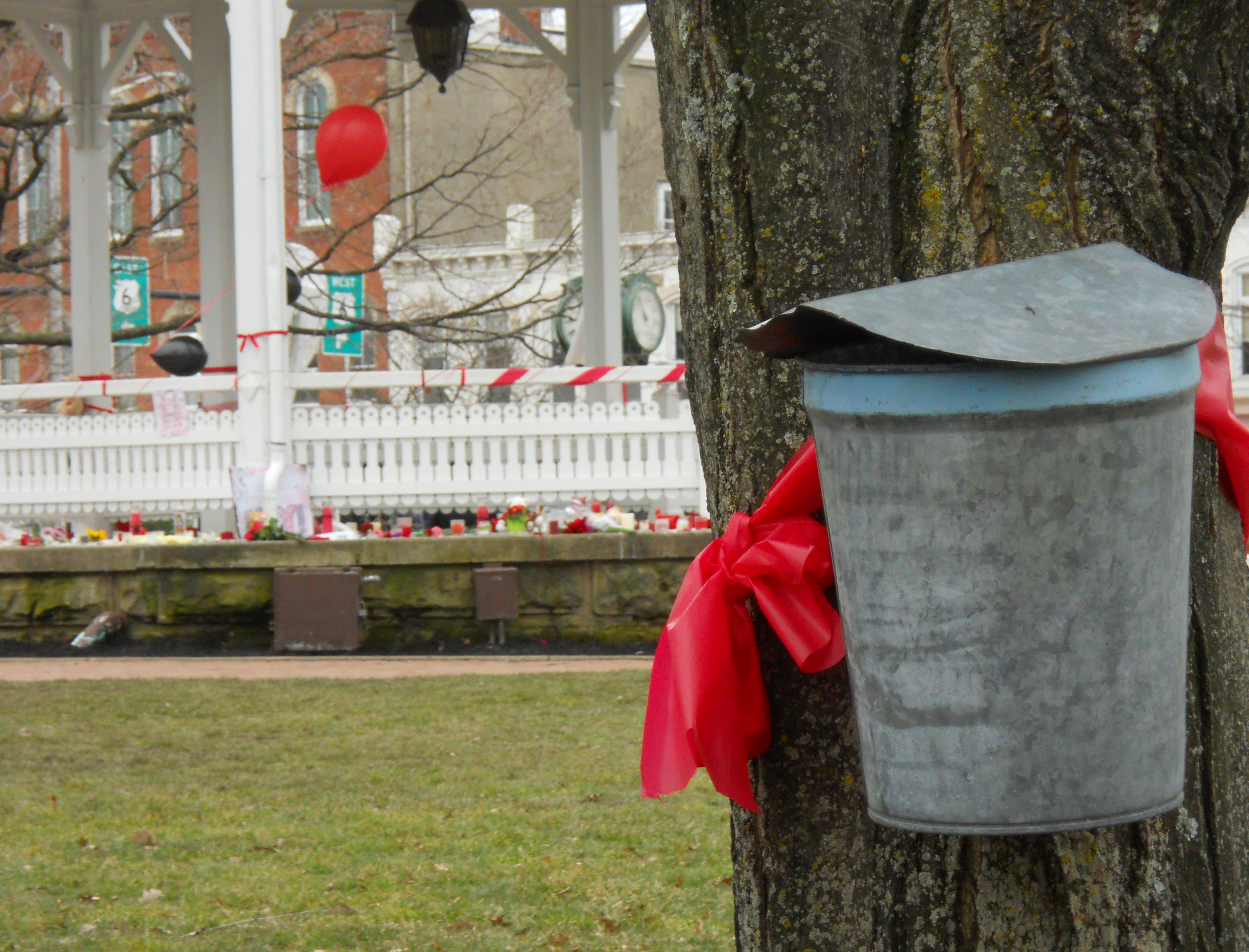We are all told to expect the unexpected. Those of us in ministry certainly know one thing: we never know what’s coming next.
Hurricane Sandy or other natural disasters, unexpected plant closings that leave thousands unemployed, or the tragic shooting right here in my own hometown of Chardon earlier this year — a crisis like any of these can blindside us, leaving ministry leaders wondering how to best prepare their ministry for a crisis they can’t see coming.
We certainly saw this happen here and learned a few lessons from it that might be of help to your ministry. By the time shots shattered the early morning stillness at Chardon High School, it was too late for Christian leaders in this quintessential piece of small-town America to prepare for effective ministry. 
Before February 27, 2012, my hometown of Chardon, near Cleveland, Ohio, was known for its sweet maple syrup, intense snowfalls, and conservative family values. On that fateful day, Chardon became known as the site of a deadly school shooting. As I predicted then, Chardon did rise again from the tragedy. But red ribbons can still be found around town remembering the three students killed and two others injured after another student allegedly opened fire.
When the Going Get’s Tough
Amidst the chaos, local Christian leaders rapidly responded to calls for help because they had already intentionally laid the foundation for a meaningful crisis response – relationships. Jen and Dean Carlo, for example, fourteen–year veterans of Youth for Christ in Chardon, were among the first responders to Maple Elementary School, the off-site student-pickup location. In fact, Dean helped teachers and safety officers use the sound equipment that day – because he had helped install it himself.
In addition to their immediate response, Dean and Jen were likely the last to have a meaningful spiritual conversation with shooting victim Russell King, Jr., at their CRAVE 631 youth ministry (based on Psalm 63:1). Dean recalls the weight of ministry that followed the tragedy, “I remember at the end of the first funeral thinking, ‘Wait, we have two more funerals to go.’ I didn’t even know what to do with that thought other than push it aside and get back to ministering. It was a tough time.” And the tough times continue. “We were at the Summer Christian Festival and one of our students suddenly got a serious look and said, ‘Wait, Russell isn’t going to graduate with us next year.’”
Much of the advice from Dean, Jen, and local pastors on how to prepare for something so unpredictable can be summed up as three things to build now – before tragedy strikes.
How to Prepare Your Ministry for a Crisis
- Build Bonds. The trusting relationships began nearly two decades ago when Pastor Wayne Sanders of Chardon Christian Fellowship invited area pastors to meet monthly. Crossing denominational lines, this faithful group of Bible-believing pastors sprang into action on that tragic day. Pastor Greg DiMeolo of Christ Community Church recalls the pastors gathering quickly that evening to assign schools and schedule times to minister in them.
Area leaders leaned heavily on these pastors for support. Pastor DiMeolo says that the outcome of those often tearful interactions was that “[They] gave us the green light to be as Christian as we wanted to be.” The Chardon public school leaders welcomed pastors into the halls with open arms, even asking them to pray as teachers met to regroup. Once again in the public schools, Pastor DiMeolo recalls, “There was no reservation about calling on God’s name.”
- Build Bridges. “Become part of your community,” Jen advises. Dean more pointedly insists, “If you have a school in your community, that needs to be a main focus of your ministry.” By connecting with school principals, local law enforcement, and other community leaders now, those bridges will already be in place when a crisis strikes.
Three years prior to that day, Dean and Jen had built bridges between six area churches of different denominations. At Dean’s suggestion, the churches pooled resources with Youth for Christ for a weekly outreach. As Dean puts it, “In our brokenness, it was as if God said, ‘Now that you guys realize you need me, watch what I do.’” Because of this alliance, CRAVE 631 became a hub for healing with Chardon teens.
- Build Bunkers. CRAVE 631 created a safe place for teens – and parents – seeking shelter in the emotional maelstrom. For example, a mother and daughter showed up one night just saying that they had to be there. Both later professed faith in Christ. Dean made sure everyone knew they were welcome, “We literally propped the church doors wide open in February with a spotlight on a multi-colored sign saying ‘Church Open for Prayer.’” Often, they stayed into the early morning hours with those in fear. Jen further recommends, “Have a crisis team in place in your church,” including making gospel packets ready and available.
Because of the firm foundation of deep relationships, the ministry in Chardon will continue for years. “Yes, we’re exhausted,” says Dean.“But we know this is what we’re supposed to be doing.”
They prepared for it. They built for it. By the time the crisis came, it was too late to get ready.
Which of the lessons do you find most helpful for your ministry? What other lessons would you add from your own ministry experience? Leave a comment to help us all better prepare to minister during the next crisis.
You can support the continuing ministry of Youth for Christ in Chardon with a tax deductable donation. Go to www.yfccleveland.org and click on “Donate”, and put “Chardon Crisis” on your donation. Good people. A very worthy cause.











